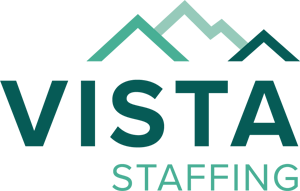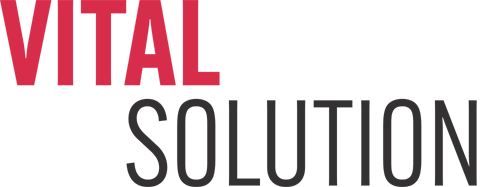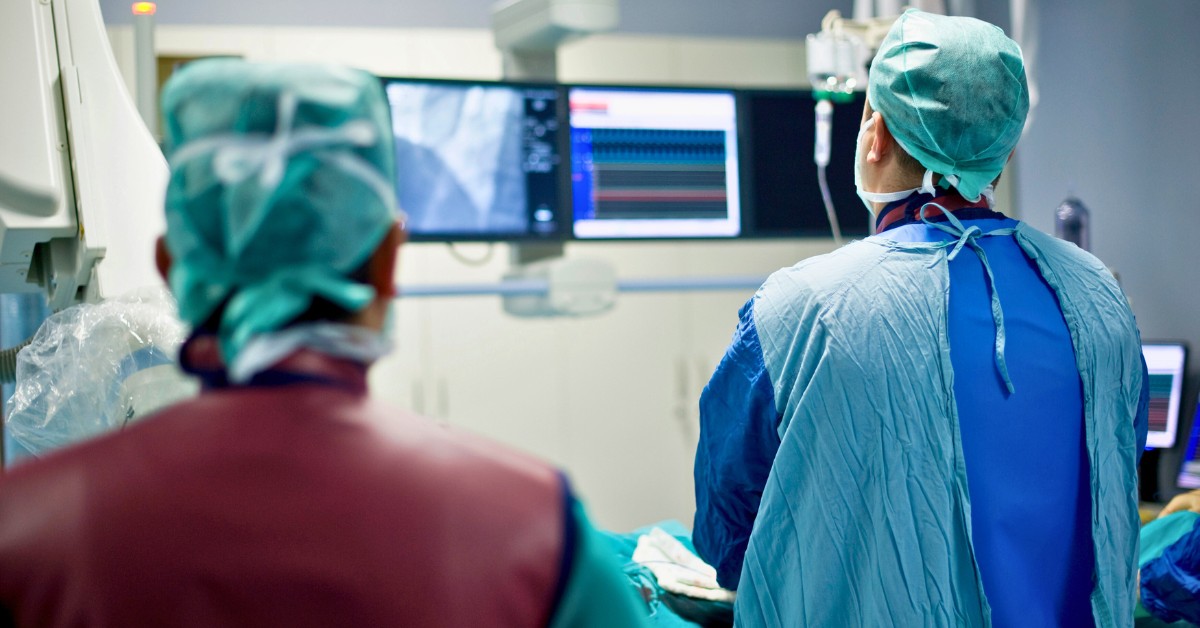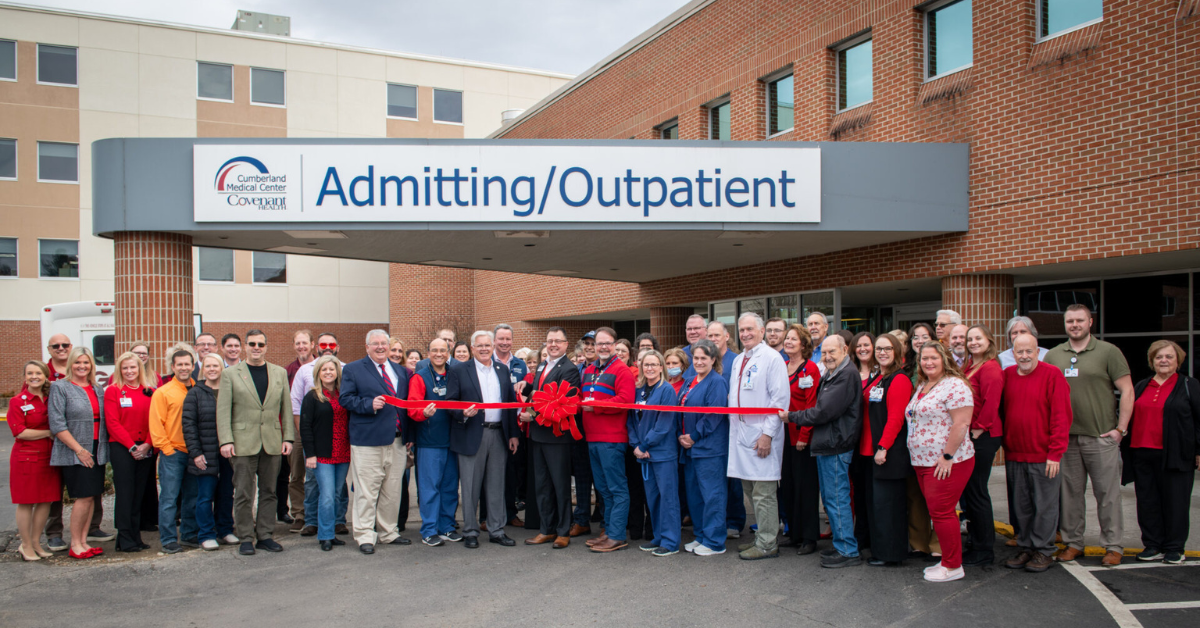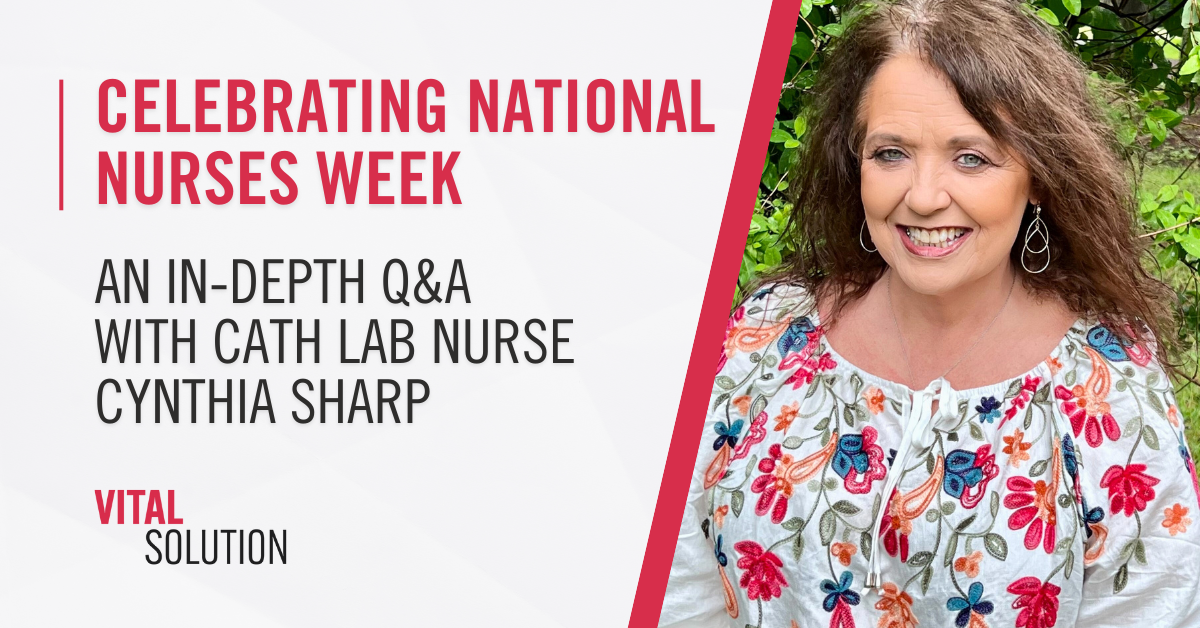
Celebrating Nurses Week: An In-Depth Q&A with Cath Lab Nurse Cynthia Sharp
An estimated 1.4 million Americans suffer heart attacks each year with approximately 400,000 of these being STEMIs—a severe form of heart attack that requires immediate and expert medical intervention. It’s within this high-stakes environment that cath lab nurses like Cynthia Sharp, RN, play a pivotal role, often being the first line of defense against the most critical cardiac events.
This National Nurses Week, we pay tribute to those nurses whose specialized skills and rapid response are crucial in saving lives and improving outcomes for those suffering from cardiac episodes.
We are honored to feature cath lab veteran Cynthia Sharp, RN, one of two VitalSolution cath lab nurses at Harbor Regional Health in Aberdeen, Washington. Her experiences provide a profound look into the cath lab, where every second counts and the efforts of these dedicated nurses are more critical than ever.
How long have you been on this assignment?
Cynthia Sharp, RN: I’ve been in Aberdeen for two and a half years with my dogs, Lazur and Tater. I work two weeks, followed by two weeks off. When I’m off, I go home to Amarillo, Texas, where my mother, sister and brother-in-law, niece, two daughters and grandson live. I have the best of both worlds. When I’m in Aberdeen, I can focus on my patients. When I go home, I can be mom, sister, aunt and grandma, and take care of my mother.
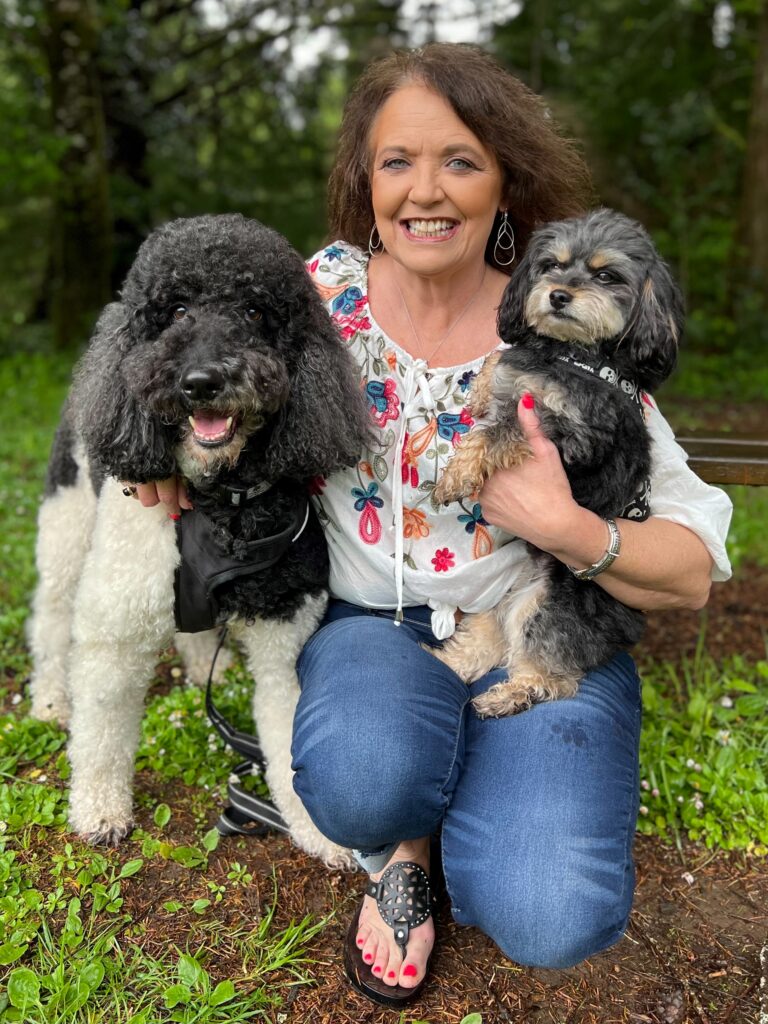
Why did you become a cath lab nurse?
Cynthia Sharp, RN: After high school, I went to college for court reporting, then worked in accounting. One day, I was looking through a childhood book. In it, I said I wanted to be a nurse when I grew up. It’s crazy, but I’ve wanted to be a cardiac nurse ever since then.
I earned my registered nursing degree in 1995 and have since been in intensive care, critical care, and medical intensive care. I’ve worked as a tech, nurse, charge nurse, house supervisor, and director of nurses. I’ve always loved the cath lab! It’s just something that’s in my blood. I’ve worked in cath labs in Ohio, New Mexico, Texas, and Washington.
What’s a typical day like for you?
Cynthia Sharp, RN: We usually have scheduled elective cases, but we also perform stress tests. However, if an emergency ST-elevation myocardial infarction (STEMI) comes in, that’s our priority. I’ll work with the cardiac techs to set up the room and ensure that the patient’s consent is signed, and then I’ll go down to the ER to get the patient. Everyone jumps in to get the patient to the table quickly while I gather all the medications and supplies we’ll need for the procedure.
Before I administer the sedation, the entire team performs a “time out” to double-check the patient’s identity and review the procedure. During the procedure, I monitor the patient and make sure they’re comfortable. If there’s a complication, we’ll call for the code team and start advanced cardiac life support. We work as a team to ensure the best possible outcome.
What do you find rewarding about this work?
Cynthia Sharp, RN: When a patient is in extreme pain because, for example, their right coronary artery is occluded, and then we open it and get blood flowing again, it’s just such a relief. You see the patient relax and instantly feel better. That’s a great feeling. And it’s rewarding to be thanked and appreciated by patients and their families after a procedure.
“…when I stop getting emotional about my patients, I’ll know it’s time for me to quit. Your heart has to be in it.”
What are some of the challenges?
Cynthia Sharp, RN: One of the biggest challenges is when we’ve done everything we can and can’t do anything more. Sometimes, all of our interventions are just not enough. Sometimes, it’s up to God. But when you’ve developed a good rapport with a patient and then something happens, that’s tough. I’ve cried with and comforted many patients and their families. I’ve had to tell families that their loved ones didn’t make it. It’s tough, and sometimes you do bring it home with you, but when I stop getting emotional about my patients, I’ll know it’s time for me to quit. Your heart has to be in it.
How has the field evolved over your career?
Cynthia Sharp, RN: Technology has changed drastically. When I started, we cut down and went right into the artery, usually the brachial. Now we go in through the radial artery. We used to have C-clamps to clamp arteries but now use FemoStops and things like closure devices for the groin, arterial bands, and drug-coated balloons and stents. We now use intravascular ultrasound to visualize the artery to determine the extent of the occlusion and the size of the artery. Technology has advanced so much. The medications that we use have also changed. You have to stay up on what’s current.
What do you enjoy most about travel assignments?
Cynthia Sharp, RN: I get to meet new people and clinicians and see new cultures and new ways of doing things. I enjoy seeing different parts of the country. It’s just a learning experience in general. When I’m in a new location, I like going to antique stores or museums, hiking or looking at the ocean, lakes, or mountains, depending on where I am.
It’s always exciting to see what’s different in each place. This area of Washington is known for its crabs, steelhead trout, tuna, and salmon. In fact, a patient once brought me salmon that he smoked himself! In New Mexico, it was all about the green chilies, and everything was spicy. I’m not afraid to try something new.
“I’ve met many people, made many good friends, and I don’t think anything could ever replace it. It’s been an amazing adventure.“
What advice do you have for students or new nurses interested in this type of work?
Cynthia Sharp, RN: Working in the cath lab takes a different kind of person. We’re a different breed. The hardest thing for a newcomer would likely be the call, because when you’re on, you’re on 24/7. You may get a call in the middle of the night or during Thanksgiving dinner. That’s just part of the job. You have to be committed enough to embrace that schedule. But when you get there and start helping someone, you realize it’s all worth it. It’s worth getting up out of that bed.
I love nursing! It’s been good to me. I’ve met many people, made many good friends, and I don’t think anything could ever replace it. It’s been an amazing adventure. My cup runneth over!
 company
company 
 (866) 755-7519
(866) 755-7519






